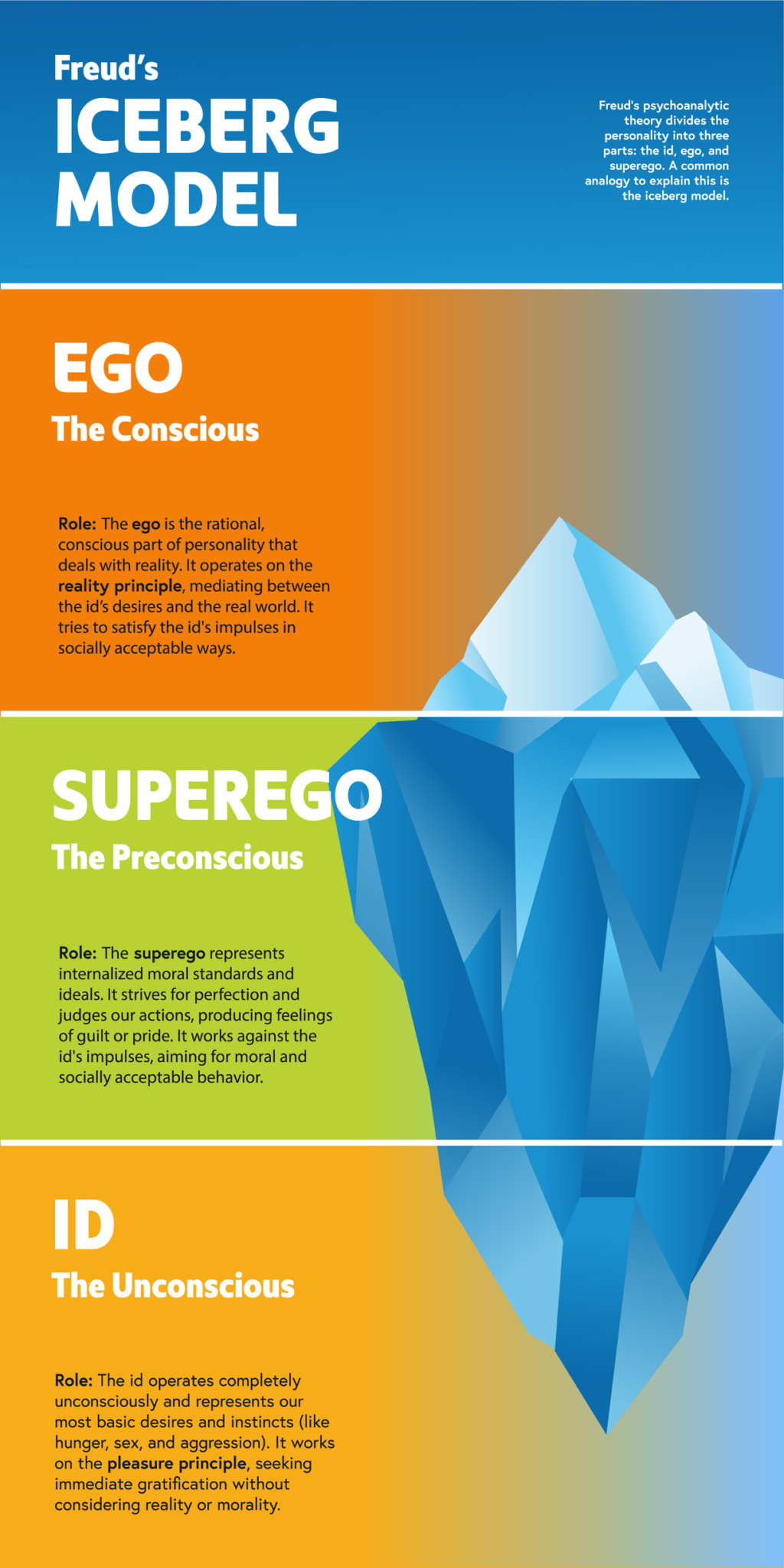Measuring something as ever-changing, intangible, and internalized as your own ego can be a challenge. Trying to quantify its impact on your lifestyle and your recovery from addiction gets even more complicated.
The ego is a psychological concept, not a physical part of the brain or anything else that exists in material, three-dimensional space and its size cannot be measured. When we talk about someone having a large ego, what we’re really talking about is someone who routinely engages in selfish or narcissistic behaviors. Persons with big egos value themselves and their own opinions above all others. They may appear to lack empathy, compassion, or overall concern for the world around them.
A small ego, conversely, refers to someone who is in control of their ego and able to relate to other people. When people make selfless, healthy choices that don’t harm themselves or others, they are usually seen as having small or well-adjusted egos.
How Big Is My Ego?
Your ego is as big as you allow it to be! We all have it within ourselves to control and understand our egos and impulses. Sometimes professional help is needed, and there’s nothing wrong with that. Knowing yourself and caring for yourself enough to seek the assistance you deserve is a beautiful thing, and an example of ego being used in a positive way.
There are various ego self-assessment tools available online or through your mental health provider. Take our ego quiz above for a snapshot of your ego today, and how it might impact your recovery journey.
What Is Ego?
Some of the complexity in trying measuring ego comes from the way the definitions of ego have been debated and revised over time.
It is an oversimplification to say that your ego is your “self.” Ego is a mental construct each one of us creates to think about ourselves. Your ego is not who you are, but who you believe you are.
The word “ego” is borrowed from Latin, where it literally translates to “I.” In its original Latin context, “ego” is not an abstract reference to how self-absorbed someone is, but the most basic self-describing pronoun.
You may be aware of the popular belief that it was Sigmund Freud who established our modern psychological use of the term ego, but this is not entirely true. The word “ego” does not actually appear in any of Freud’s original texts. Freud wrote in German, and used the phrase “Das Ich,” which translates literally to “the I” in English, much like “ego” itself.
It was actually Freud’s translator, James Strachey, who made the commendable stylistic decision to borrow the Latin term “ego” for this new and distinct concept of the psychological self. Strachey likely had no idea at the time that his editorial choice would forever change the way English-speaking people discuss psychology and mental health.
In the Freudian model of psychology, the ego functions as a sort of a personality middleman between the “id” (your basic, instinctual desires) and the “superego,” which might sound like an extra-powerful ego but actually refers to the influence of social norms, ethics, religious beliefs, politics, etc. on your personality. It is in this middle ground between base animal behavior and the expectations put on us by our communities that a distinct personality and individual sense of self can develop.
Used in a modern context, the word “ego” often comes off sounding like something dirty or undesirable, like something we should all strive to be rid of. But ego is not inherently bad in the Freudian view, nor in most contemporary psychological models. In fact, ego is often called the rational part of personality. Ego allows us to look at emotionally charged situations objectively and logically and gives us the ability to step back and evaluate our own feelings and impulses rather than be controlled by them.

How Ego Drives Substance Abuse
The same things that make your ego useful and special also have the potential to make it dangerous. This can be especially true for addicts and folks in recovery.
Rather than using logic to overcome harmful impulses, you might instead use logic to justify them. Rather than step back and process negative emotions in a healthy way, you might latch on to them and let them define you. Rather than interpret society’s expectations in a way that helps you function as part of a community, you may find reasons to reject society altogether. All of these are examples of ego-driven choices that can push someone further away from the interpersonal connections and accountability crucial to successful recovery.
An overinflated ego can be harmful to your addiction recovery because it changes your perception of events and your own role in them. Someone with an oversized ego can delude themselves into believing they have no accountability for the issues in their life. In turn, this sort of thinking can lead to impulse control and damaged relationships, a cycle that recovering addicts understand all too well.
When your ego is too big, you tend to disregard any advice given to you, because it’s coming from other people, and your ego does not allow you to see others, their thoughts, or their efforts as worthwhile. Ego problems of this sort can even lead addicts to rejecting help when it’s offered.
Addicts and other egotistical persons often justify their behavior with the language of pride, self-confidence, or self-worth. This tactic is often effective at both deluding oneself and convincing others, but is an example of toxic positivity. When an addict co-opts the language of positive self-affirmation to mask their destructive behaviors, there is ego at play.
How Ego Gets in the Way of Recovery

Someone who refuses to take the words and feelings of other people seriously won’t get much out of a recovery program that requires them to listen and share feedback in a group setting. An addict with an overinflated ego may believe they know better than the professionals and loved ones offering them help, even if they have years worth of evidence proving otherwise.
Even in day-to-day life outside of a formal recovery program, ego creates massive stumbling blocks for those trying to get and stay sober. The desire for the short-term gratification of getting high could be considered part of the “id” rather than the ego. The id controls instinctual urges, and when the human brain has been “rewired” by highly addictive drugs, the resulting physiological urge to seek out further drug use is beyond the control of the ego, which operates more or less on logic.
The ego comes into play because the addict knows, at least logically, that using is bad for them, but they justify the choice to do so anyway. The addict with a big ego may believe their gratification is more important than the harm being done, or that they are somehow too powerful to be harmed by addiction at all.
Dangers of a Big Ego
Someone with an extremely big ego may take more and greater risks than the average person. This may seem counterintuitive at first — wouldn’t an egotistical person want to keep their all-important self safe from harm? This is true, but the ego can get so far out of balance that the most egotistical people may believe they are impervious to harm, or too important for risk-taking to have any consequences. This can lead to all sorts of harmful or socially unacceptable behavior.
Replacing Ego With Humility
The best way to fight against a toxic ego is to be aware of it. When you have egotistical feelings or catch yourself doing self-centered things, acknowledge it, own it, and correct it. Allowing yourself to be wrong takes strength but will result in growth and a path to a healthy relationship with your ego.
When you find yourself responding to a situation with ego, try consciously replacing it with a response that shows humility instead.
There are many ways to focus on humility in your life:
- Listen more. Do you find yourself talking over others, or interrupting before they’ve finished what they’re saying? Focus on active listening and empathizing when people express themselves to you. You don’t need to have an answer for everything that is said to you. Know when it’s enough to simply listen.
- Be mindful. Mindfulness skills can be developed in all sorts of ways, but you don’t need to attend a seminar or yoga class to bring increased mindfulness to your day-to-day routine. Focus on the world and the people around you. Accept things for what they are and seek to understand them without condemning them, analyzing them, or comparing them to yourself unfavorably. Then, when you’re ready, turn inward with the same sense of mindfulness and acceptance, looking past your armor of ego.
- Be grateful. Be aware of the comforts and privileges you have, even if they sometimes seem few and far between. The fact that you are here, reading this, taking time to worry about your own mental health speaks to a level of privilege that not everyone has. Be thankful for it. Also, thank the people (and places, and animals, and objects) in your life for being there, and remember or forgive the ones who aren’t anymore. Manifest your gratitude in ways beyond mere words. Be available to help when people need it.
- Reach out. Don’t be above asking for help when you need it. Ask when you need help and give aid to others where you’re able without worrying what’s in it for you. Ask other people for input when you’re unsure and share your thoughts and feelings openly without weaponizing them. Give praise where it’s due and tolerance where it’s needed.

Addiction Freedom Now is a community of recovery professionals, former addicts and their families.
Our goal is to share recovery experiences, trials and triumphs in a safe environment where those still struggling are empowered to get the care they need. JOIN THE COMMUNITY

How Much Do You Know About Mindfulness?
Think you know about mindfulness? Test your knowledge with this mindfulness quiz.
Mindfulness Coloring Book
This beautifully designed 70-page Mindful Mandala Coloring Book (PDF) is perfect for anyone seeking a peaceful, therapeutic activity to support their recovery journey.




